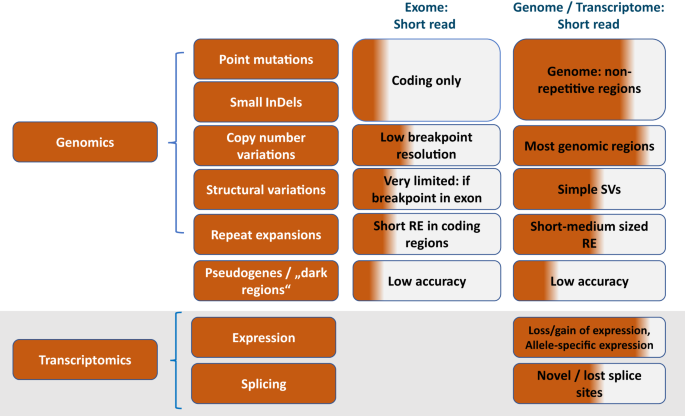California’s Housing Overhaul: A New Era for Landlords and Tenants
California’s Housing Overhaul: A New Era for Landlords and Tenants
In a transformative move towards enhancing housing affordability and tenant security, California is poised to introduce significant legislative changes in 2024. These changes, encapsulated in Senate Bill 567 and Assembly Bill 12, promise to reshape the landscape for landlords and tenants alike.Senate Bill 567: Tenant Protection and Just Cause Evictions
Effective April 1, 2024, Senate Bill 567, also known as the Homelessness Prevention Act, institutes comprehensive protective measures for tenants. The legislation caps rent increases at 10% annually and prohibits evictions without just cause. Under these new rules, landlords must provide explicit reasons for eviction, distinguishing between “at-fault just cause” and “no-fault just cause” scenarios, such as the owner’s intention to occupy or remodel the property.Landlords seeking to evict tenants on these grounds must adhere to stringent guidelines: occupying the property within 90 days and maintaining residence for at least 12 months. Additionally, if substantial remodeling is cited, landlords must furnish tenants with detailed written notices, construction timelines, and necessary permits. Failure to comply could result in severe financial penalties, including triple damages and attorney fees.
The bill further empowers enforcement by permitting the California Attorney General or city attorneys to pursue injunctive relief against violators. Landlords found guilty of rent overcharging face civil damages, reinforcing the bill’s commitment to tenant protection.
Assembly Bill 12: Security Deposit Reform
Taking effect on July 1, 2024, Assembly Bill 12 revises security deposit limits, capping them at one month’s rent for both furnished and unfurnished dwellings. This marks a departure from the previous allowance of up to three months’ rent, aiming to alleviate financial pressures on tenants.The legislation includes exceptions for “small landlords,” defined as those owning limited rental properties, allowing them to collect higher deposits under specific conditions. This reform seeks to enhance housing accessibility, particularly for financially strained residents, amidst the backdrop of rising operational costs and regulatory complexities for landlords.
Conclusion
These legislative changes signal a pivotal shift in California’s approach to housing, presenting both challenges and opportunities for landlords. As these laws take effect, landlords are advised to consult legal experts to navigate the new regulatory landscape effectively and ensure compliance.More Articles
Getting licensed or staying ahead in your career can be a journey—but it doesn’t have to be overwhelming. Grab your favorite coffee or tea, take a moment to relax, and browse through our articles. Whether you’re just starting out or renewing your expertise, we’ve got tips, insights, and advice to keep you moving forward. Here’s to your success—one sip and one step at a time!
Unveiling the Intricacies of Fraud Detection
Unveiling the Intricacies of Fraud Detection
Fraud detection, a critical process in safeguarding financial and data resources, involves identifying suspicious activities that could signify criminal theft. As highlighted in a recent IBM article, such activities can significantly impact both individuals and businesses. The Association of Certified Fraud Examiners (ACFE) estimates that U.S. businesses lose an average of 5% of their gross annual revenues to fraud, underscoring the urgency of effective fraud detection strategies.The Importance of Fraud Detection
Fraud detection is paramount not only for minimizing financial losses but also for maintaining customer trust and adhering to regulatory mandates. Without robust fraud detection measures, businesses risk reputational damage and operational disruptions. Notably, during the COVID-19 pandemic, the Bank of America faced a hefty fine of USD 225 million due to a faulty fraud detection system.Techniques in Fraud Detection
Organizations employ various techniques to combat fraud, including transaction monitoring, artificial intelligence, and statistical data analysis. Transaction monitoring tools analyze transaction data in real-time, using anomaly detection to flag unusual activities. Meanwhile, AI and machine learning models can predict fraudulent behavior more efficiently, adapting to evolving fraud trends.Common Types of Fraud
Fraud manifests in numerous forms, from credit card fraud to money laundering. Credit card fraud involves unauthorized use of card information, leading to chargebacks and financial losses for merchants. Money laundering, on the other hand, involves concealing illegally obtained funds to make them appear legitimate.Challenges in Fraud Detection
The landscape of fraud detection is fraught with challenges. Generative AI, for instance, enables fraudsters to create convincing fake content, complicating detection efforts. Additionally, systems that produce excessive false positives can deter legitimate customers and slow down operations. Staying ahead of sophisticated fraud tactics, such as those used by the China-based fraud ring BogusBazaar, requires continuous adaptation and vigilance.Data Privacy and Fraud Detection
Balancing fraud detection with data privacy regulations presents another hurdle. While organizations need access to personally identifying information (PII) for effective fraud detection, privacy laws can restrict data access, potentially hindering detection efforts.The original IBM article provides a comprehensive overview of these issues, emphasizing the need for innovative strategies to counteract fraud in an ever-evolving digital landscape.
U.S. Real Estate Market Outlook for 2025: Trends, Challenges, and Predictions
 As we edge closer to 2025, the U.S. real estate market stands at a pivotal juncture. A confluence of economic shifts, demographic changes, and technological advancements is set to redefine the landscape, impacting both housing and commercial real estate sectors profoundly. This transformation, detailed in a recent analysis by The Africa Logistics, highlights the challenges and opportunities that lie ahead.
As we edge closer to 2025, the U.S. real estate market stands at a pivotal juncture. A confluence of economic shifts, demographic changes, and technological advancements is set to redefine the landscape, impacting both housing and commercial real estate sectors profoundly. This transformation, detailed in a recent analysis by The Africa Logistics, highlights the challenges and opportunities that lie ahead.
The Economic Landscape
The broader economic context will be a significant determinant of real estate market dynamics. As we approach 2025, key economic indicators such as interest rates and inflation are poised to influence market activity. The Federal Reserve’s monetary policies will play a crucial role; their adjustments to interest rates could either cool or spur real estate activity. Elevated interest rates may dampen housing demand, while ongoing inflation continues to pressure construction costs, potentially leading to higher prices or reduced new projects.Residential Real Estate: A Mixed Outlook
The residential sector faces a dual reality of challenges and opportunities. A persistent shortage of housing inventory, particularly affordable homes, continues to drive up prices. This scarcity is exacerbated by supply constraints and rising mortgage rates, which may push first-time buyers out of the market. However, the entry of Generation Z and Millennials into the housing market will shape demand patterns, with a preference for tech-savvy, sustainable living spaces.Commercial Real Estate: A Sector in Transition
Commercial real estate is at a crossroads, adapting to post-pandemic realities and evolving consumer behaviors. The office space landscape is shifting with the rise of remote work, leading to a potential decline in demand for large urban office spaces. Meanwhile, the retail sector must navigate the ongoing e-commerce boom, focusing on experiential offerings. Industrial properties, driven by e-commerce and logistics needs, are expected to see continued growth.Technological Transformation
Technology is revolutionizing the real estate industry, from smart homes to AI-driven investment strategies. The integration of smart technology in buildings appeals to tech-savvy buyers, while AI and big data enhance investment decision-making. Virtual and augmented reality tools are also transforming property viewing experiences, making them more accessible and efficient.Regional Variations
Migration patterns, fueled by remote work policies, will continue to shape regional real estate trends. Suburban and secondary markets are witnessing growth as people seek affordable living spaces outside expensive metropolitan areas. Simultaneously, urban centers are experiencing revitalization, driven by mixed-use developments and urban renewal projects.As the U.S. real estate market navigates these changes, investors and developers must remain agile, leveraging technological tools and staying attuned to market trends. The landscape promises to be dynamic, driven by economic forces and innovative solutions to meet modern demands.
For further insights, explore related articles: “`
NVIDIA’s New Inspection Lab: A Leap Forward in Autonomous Vehicle Safety
NVIDIA’s New Inspection Lab: A Leap Forward in Autonomous Vehicle Safety
In a groundbreaking move to bolster safety standards in the autonomous vehicle industry, NVIDIA has unveiled its DRIVE AI Systems Inspection Lab. This state-of-the-art facility aims to assist automotive ecosystem partners in navigating the evolving landscape of autonomous vehicle safety standards. The lab is dedicated to inspecting and verifying that partner software and systems on the NVIDIA DRIVE AGX platform meet rigorous safety and cybersecurity standards.
NVIDIA’s lab has earned accreditation from the ANSI National Accreditation Board (ANAB) following the ISO/IEC 17020 assessment. This accreditation covers vital standards such as:
- Functional safety (ISO 26262)
- SOTIF (ISO 21448)
- Cybersecurity (ISO 21434)
- UN-R regulations, including UN-R 79, UN-R 13-H, UN-R 152, UN-R 155, UN-R 157, and UN-R 171
- AI functional safety (ISO PAS 8800 and ISO/IEC TR 5469)
“The launch of this new lab will help partners in the global automotive ecosystem create safe, reliable autonomous driving technology,” stated Ali Kani, vice president of automotive at NVIDIA. He emphasized the lab’s role in ensuring adherence to the industry’s safety standards by combining functional safety, cybersecurity, and AI.
The lab’s inaugural participants include industry giants like Continental and Sony SSS-America. Nobert Hammerschmidt of Continental expressed excitement about intensifying collaboration with NVIDIA, while Marius Evensen of Sony SSS-America highlighted the lab’s potential to enhance road safety.
Riccardo Mariani, head of industry safety at NVIDIA, noted the challenges of ensuring compliance with functional safety, SOTIF, and cybersecurity for complex AI-based systems. Through this lab, NVIDIA aims to verify the integration of partner products with DRIVE safety and cybersecurity requirements.
Aligning with Global Safety Standards
The NVIDIA DRIVE AI Systems Inspection Lab complements the missions of independent third-party certification bodies, such as TÜV SÜD, TÜV Rheinland, and exida. It aligns with vehicle certification agencies like VCA and KBA, further cementing NVIDIA’s commitment to safety.Recent certifications highlight this commitment.
 TÜV SÜD granted ISO 21434 Cybersecurity Process certification to NVIDIA, acknowledging their robust processes and compliance with ISO 26262 ASIL D standards.
TÜV SÜD granted ISO 21434 Cybersecurity Process certification to NVIDIA, acknowledging their robust processes and compliance with ISO 26262 ASIL D standards.
Additionally,
 TÜV Rheinland conducted an independent safety assessment of NVIDIA DRIVE AV, recognizing NVIDIA’s high-quality, safety-oriented processes.
TÜV Rheinland conducted an independent safety assessment of NVIDIA DRIVE AV, recognizing NVIDIA’s high-quality, safety-oriented processes.
For further insights into NVIDIA’s advancements in autonomous driving safety, refer to the NVIDIA Self-Driving Safety Report.
Revolutionizing Clinical Care: The Age of Genome Sequencing
Revolutionizing Clinical Care: The Age of Genome Sequencing
In a world where precision medicine is no longer a distant dream but a present reality, genome sequencing (GS) is taking center stage, reshaping how we approach the diagnosis and treatment of genetic conditions. The significance of genomics and multi-omics in the medical field has surged, driven by the increasing affordability and accessibility of GS technology. This shift is transforming the landscape of healthcare, particularly in the realms of rare diseases and cancer.
The original article from Nature delves into this transformative journey, highlighting the role of GS in providing precise molecular diagnoses. It not only addresses the technical and diagnostic superiority of GS over other sequencing methods but also emphasizes its broader implications for medical management and patient outcomes.
The Rise of Genome Sequencing in Clinical Care
The transition of GS into routine clinical practice marks a significant milestone. As sequencing and data analysis capacities advance, GS is becoming a first-line diagnostic tool in clinical settings. This evolution is not just about identifying the underlying causes of diseases but also about predicting genetic risks for conditions that have yet to manifest.Studies Paving the Path Forward
Studies like Genome First and Ge-Med are at the forefront of implementing genome-based medicine. These initiatives aim to integrate GS into clinical workflows, enhancing early disease detection and personalized treatment strategies. The impact of these efforts is profound, potentially altering medical management and improving patient outcomes.For those interested in exploring the original article further, you can find additional resources and supporting references here. The article provides a comprehensive look at how genome sequencing is poised to revolutionize clinical care, offering a glimpse into a future where precision medicine is the norm.
The Future of Health-Tech in 2025
The Future of Health-Tech in 2025
As the digital revolution continues to reshape industries, the health-tech sector stands on the brink of transformative growth. By 2025, driven by breakthroughs in AI, advanced data insights, and a shift toward predictive, personalized care, the industry is poised to redefine digital health. The global market is projected to surpass $200 billion, expanding at a compound annual growth rate (CAGR) of 25%.
Digitising Disconnected Journeys
One of the most significant transformations expected in 2025 is the digitization of disconnected care journeys. These often include specialist referrals, non-urgent follow-ups, or mental health pathways, which remain fragmented within broader healthcare ecosystems. Insurers are anticipated to play a pivotal role in bridging these gaps, aligning their efforts with mobile app strategies to create cohesive, accessible frameworks.For instance, a user might seamlessly transition from completing a virtual health assessment on their mobile app to scheduling an in-person consultation, with all relevant medical history shared automatically. This connectivity ensures a smoother, more integrated experience while reducing redundancies and delays in care delivery.
The Rise of Predictive and Personalised Care
Predictive and personalized healthcare will see significant advancements in 2025. Predictive insights will transform raw data into clear, actionable explanations, enabling healthcare providers and insurers to make informed decisions. This approach represents a shift from traditional, reactive healthcare models to preventive, user-focused strategies.By leveraging AI and actionable insights, health-tech solutions will deliver timely interventions throughout the patient’s journey, marking a move towards proactive health management.
AI’s Expanding Role in Healthcare
Artificial Intelligence will remain a cornerstone of health-tech innovations in 2025, with its applications expanding across diagnostics, treatment planning, and operational workflows. AI-powered imaging analysis will improve diagnostic accuracy, while automated systems for routine tasks, such as patient documentation, will alleviate staff shortages and burnout.AI-driven insights will also play a critical role in real-time patient monitoring. Predictive algorithms will translate complex health metrics into simple, actionable insights, enabling earlier interventions and improved outcomes.
Wearable Technology and Remote Monitoring
Wearables will continue to evolve, becoming indispensable tools for personalized care and chronic disease management. Innovations in sensors and smart devices will enable real-time data collection, offering healthcare providers continuous insights into patients’ health. These tools will drive growth in remote monitoring programs, particularly for managing chronic conditions such as diabetes, hypertension, and heart disease.A Focus on Mental Health
Mental health care will remain a priority in 2025, driven by ongoing societal stressors and demand for accessible solutions. AI-powered tools will provide personalized insights into emotional wellbeing, integrating mental health services into broader healthcare platforms for a holistic approach to health management.Overcoming Challenges in Health-Tech
While the future of health-tech looks promising, challenges such as data privacy concerns, the digital divide, and regulatory hurdles must be addressed for its full potential to be realized. Ensuring that data insights are accurate, actionable, and delivered in accessible formats will be critical to widespread adoption.For more insights, visit the full article on Irish Tech News.
Unveiling Flood Adaptation Disparities in the USA
Unveiling Flood Adaptation Disparities in the USA
In a groundbreaking analysis published in Nature on September 27, 2024, researchers have shone a light on the stark disparities in flood adaptation across the United States. Leveraging a dataset of approximately 2.5 million flood insurance claims from FEMA, the study exposes significant differences in how communities access and benefit from flood adaptation measures.
Flooding, as noted by Reuters, constitutes nearly a third of all losses from natural disasters worldwide. In the United States, it causes more damage than any other severe weather-related event, with annual losses averaging over $5 billion, according to the NOAA.
The Role of the Community Rating System
The study focuses on the National Flood Insurance Program’s Community Rating System (CRS), which aims to improve community flood adaptation and resilience. Communities participating in the CRS can implement various flood adaptation activities, such as floodplain mapping and stormwater management, in exchange for reduced flood insurance premiums.
However, the findings reveal that the benefits of the CRS are not evenly distributed. Discrepancies are evident among communities of varying income levels, racial compositions, and geographical characteristics. This calls for policies that address these inequities, ensuring that all communities can equally benefit from flood adaptation investments.
Key Findings and Implications
The study highlights that while flood adaptation measures generally reduce flood losses, the benefits are not uniformly felt. Affluent communities tend to experience more significant savings, while low-income and predominantly racial and ethnic minority communities often see less benefit. This inequity underscores the need for tailored interventions that consider socio-economic and demographic factors.
For instance, communities with high percentages of racial and ethnic minorities see their savings decrease with higher precipitation, indicating that current flood adaptation measures are less effective in these areas. Similarly, less populated communities may lack the resources or technical expertise to implement prescribed activities effectively.
Moving Towards Equitable Interventions
To address these disparities, future flood adaptation strategies must embed equity at their core. This involves re-examining flood adaptation prescriptions and incentives with a focus on race, income, and geographical characteristics to ensure a just and equitable distribution of benefits.
The study calls for interventions that reduce educational and technical barriers, providing necessary resources to communities that face financial and infrastructural challenges. By doing so, the goal is to break existing patterns of inequality and support all communities in mitigating flood losses effectively.
With climate change expected to increase the frequency and severity of flooding, the insights from this study are crucial for shaping policies that can protect vulnerable communities and ensure equitable resilience across the nation.
Ethereum’s Serenity Upgrade Sparks Excitement and Market Optimism
Ethereum’s Serenity Upgrade Sparks Excitement and Market Optimism
The Ethereum ecosystem is witnessing a significant transformation with the introduction of its much-awaited network upgrade, known as “Serenity.” This upgrade marks a pivotal moment, aiming to address long-standing challenges related to scalability, transaction speeds, and energy consumption within the blockchain community. Ethereum has shifted to a fully proof-of-stake consensus mechanism, drastically cutting down on the energy typically required for network maintenance.
A Major Breakthrough for Ethereum
The Serenity upgrade is considered a game-changer, primarily due to its cutting-edge security protocols and improved smart contract capabilities. This opens doors to more sophisticated applications in decentralized finance (DeFi), non-fungible tokens (NFTs), and beyond. The tech community and businesses are optimistic about the future, seeing this upgrade as a chance to develop complex projects that were previously impossible.
Widespread Crypto Adoption
As digital currencies mature, their application across diverse industries, including finance, retail, and gaming, has expanded. In the UK gaming sector, for example, new trends have emerged as strict UK Gambling Commission regulations push players toward non-GamStop casinos. Many of these platforms now accept cryptocurrencies like Ethereum, offering lower transaction fees and enhanced privacy. Such adoption is not just a fleeting trend but a reflection of the growing demand for digital payment solutions.
Market Response to Ethereum’s Upgrade
Ethereum’s market dynamics have shifted positively following the Serenity upgrade, with an observed price surge and renewed interest in DeFi platforms. The upgrade enhances the scalability and reduces operational costs of Ethereum, maintaining its position as a leader in the DeFi landscape. Competitors such as Solana and Cardano are challenged to keep pace with Ethereum’s advancements, which further drives innovation across the industry.
Future Prospects for Ethereum
As Ethereum continues to evolve, the broader blockchain market is poised for disruptive innovations particularly in fields like supply chain management and healthcare. These applications leverage blockchain’s capacity to provide secure, transparent, and tamper-proof records.
Conclusion
Ethereum’s Serenity upgrade is a landmark in the crypto world, setting the stage for future breakthroughs and increasing its influence beyond cryptocurrency into various sectors. The upgrade has not only boosted market optimism but also underlined Ethereum’s pivotal role in the advancement of blockchain technology that is set to transform industries worldwide.
Freddie Mac’s Mortgage Rates Reach New Heights
Freddie Mac’s Mortgage Rates Reach New Heights
In an ever-shifting economic landscape, mortgage rates have once again captured the spotlight. According to a recent report by Money, the average rate on a 30-year fixed-rate mortgage has climbed to 7.144%, while the 30-year refinance rate is averaging 7.211%. Meanwhile, Freddie Mac’s latest figures show their 30-year fixed-rate loan has increased to 6.91%, marking its highest level since July.
Rising Rates and Market Trends
For three consecutive weeks, mortgage rates have been on the rise, presenting significant affordability challenges for prospective homebuyers. Compared to the same period last year, the 30-year rate has increased by more than a quarter of a percentage point. Despite these hurdles, buyers are demonstrating resilience, as evidenced by a rise in pending home sales. Freddie Mac’s chief economist, Sam Khater, highlights this buyer activity as a sign that many are willing to step off the sidelines and enter the market.
Understanding the Numbers
Freddie Mac’s weekly analysis provides insights into the rates available to well-qualified buyers, who typically receive slightly more favorable terms than those reflected in Money’s daily survey. Borrowers with strong credit profiles are often positioned to secure better rates, underscoring the importance of financial health when seeking a mortgage.
Types of Mortgages: Fixed vs. Adjustable
Navigating the world of mortgages involves understanding the distinction between fixed-rate and adjustable-rate loans. Fixed-rate mortgages offer stability with consistent interest rates over the loan’s duration, while adjustable-rate mortgages (ARMs) start with a fixed rate for a set period before adjusting based on market conditions. The choice between these types depends on individual financial situations and future plans.
Factors Affecting Mortgage Rates
Several variables influence mortgage rates, including loan terms, insurance, taxes, closing costs, and broader economic conditions. These factors contribute to the variability in rates experienced by different borrowers, making it crucial to shop around and compare offers. For those looking to secure the best rates, larger down payments and excellent credit scores are advantageous.
Mortgage Affordability and Tools
The impact of mortgage rates on affordability is significant, affecting both the monthly payments and the overall cost of homeownership. Utilizing tools like mortgage calculators can help potential buyers explore different scenarios and better understand their financial commitments.
Securing the Best Rates
To maximize savings, borrowers are encouraged to obtain quotes from multiple lenders. According to Freddie Mac, doing so can lead to substantial savings over the life of a loan. Additionally, considering options like discount points can further reduce interest rates, offering long-term financial benefits.
For more information on securing the best mortgage rates and understanding the intricacies of the current market, visit Money’s guide to the best mortgage lenders and refinance companies.
AI Outperforms Human Experts in Ovarian Cancer Detection
AI Outperforms Human Experts in Ovarian Cancer Detection
In a groundbreaking study led by researchers at the Karolinska Institutet in Sweden, artificial intelligence (AI) has demonstrated a remarkable ability to detect ovarian cancer, surpassing the accuracy of human doctors. This revelation, published in Nature Medicine, marks a significant advancement in the use of AI as a diagnostic tool.
The study involved training AI models on an extensive dataset of over 17,000 ultrasound images from 3,652 patients across 20 hospitals in eight countries. The AI achieved an accuracy rate of 86% in distinguishing between benign and malignant ovarian lesions. In comparison, human experts scored an accuracy of 82%, while less experienced examiners achieved 77%.

Study author Elisabeth Epstein, a professor at the Department of Clinical Science and Education at Karolinska Institutet, expressed her surprise at the AI’s performance, stating, “I was surprised that the AI models outperformed all 33 of the expert examiners.” This sentiment was echoed by other researchers who see AI as a promising tool to enhance diagnostic accuracy and efficiency.
Dr. Brian Slomovitz, director of gynecologic oncology at Mount Sinai Medical Center in Florida, described the early detection of ovarian cancer as the “holy grail” in reducing mortality rates. He noted that AI-driven support could improve the interpretation of ultrasound findings, reducing both false positives and negatives.

The potential of AI in medical diagnostics extends beyond just radiology. Factors such as menopausal status and blood test results could also be integrated into AI models, enhancing their diagnostic capability. However, experts like Dr. Harvey Castro caution that AI’s effectiveness hinges on access to diverse, high-quality data. He emphasized the need for further research to ensure AI’s adaptability to real-world clinical settings.
Epstein highlighted that while AI can significantly aid in diagnostics, it is not a replacement for human physicians. “It is still the physician who remains responsible for the patient’s diagnosis and treatment,” she stated.

The Karolinska Institutet team, in collaboration with the KTH Royal Institute of Technology, plans to initiate clinical studies at Stockholm South Hospital. This research was funded by several organizations, including the Swedish Research Council and the Swedish Cancer Society.
As AI continues to evolve, it holds the promise of transforming medical diagnostics, potentially leading to earlier cancer detection and improved patient outcomes. For more details, you can read the full article on WFIN.
Revolutionizing Healthcare: The Transformative Power of AI
Revolutionizing Healthcare: The Transformative Power of AI
As we stand on the brink of a technological revolution, the integration of Artificial Intelligence (AI) into healthcare promises to be more transformative than the advent of electricity, the computer, or the internet. Kevin Riddleberger, co-founder of DispatchHealth, has been at the forefront of this evolution, witnessing firsthand the profound changes AI is bringing to clinical practices.

The Expanding Role of AI in Healthcare
AI’s integration is set to usher in personalized treatment plans tailored to individual genetic profiles and lifestyles. Virtual health assistants will soon provide real-time, accurate medical advice, managing over 85% of customer interactions by 2025. This shift allows healthcare professionals to focus more on patient care, emphasizing AI as a partner rather than a replacement.
Companies Leading the AI Healthcare Revolution
- Eko Health: Their AI-powered cardiac monitoring tools enhance heart condition detection, potentially reducing undiagnosed cardiac issues by up to 30%.
- Butterfly Network: Their portable ultrasound device, powered by AI, democratizes medical imaging, increasing diagnostic speed and accuracy.
- Abridge and Nuance: These companies reduce clerical burdens on clinicians by transcribing and structuring medical conversations, integrated into Epic systems.
- Hippocratic AI: Offers a staffing marketplace where companies can hire AI-powered agents to address healthcare staffing crises.
- Glass Health: Uses AI to integrate data sources, providing a holistic view of patient health for comprehensive care planning.
Looking Forward: Embracing the Future of Medicine
AI is a strategy enabler, not a standalone strategy. Effective adopters will prioritize integrated governance, using AI to support strategic endeavors and incorporate data as a competitive asset. However, challenges such as data privacy, ethical frameworks, and maintaining the human touch in medicine must be addressed.
As we prepare for the annual AAPA conference in Houston, the discussions around AI’s role in the future of medicine will be pivotal. Engaging with pioneers like Daniel Kraft, MD, and leading panel discussions will further our understanding and implementation of AI technologies.
Kevin Riddleberger’s insights highlight the exciting potential AI holds for healthcare, urging us to embrace this evolution boldly. The promise of AI is vast, and as we integrate these technologies, we must do so thoughtfully and ethically to enhance patient care and improve health outcomes worldwide.
Pioneering the Future: The Ethical Landscape of Fetal Genome Editing
Pioneering the Future: The Ethical Landscape of Fetal Genome Editing
In the ever-evolving world of science, the potential to edit fetal genomes is no longer a distant dream but an emerging reality. Yet, as the boundaries of genomic medicine expand, the ethical discussions surrounding these advancements remain in their infancy. Most scientists, driven by the pursuit of knowledge, are not traditionally equipped to navigate the societal implications of their breakthroughs, as noted in a recent piece from The Conversation.Uncharted Ethical Waters
The journey of genomic editing began in earnest in 2015 when U.S. scientists called for a moratorium on germline genome editing, a controversial practice where genetic alterations are inheritable. Despite these calls for open discussion, the dialogue remained largely insular, confined to scientific circles. By 2018, the world witnessed the birth of genetically modified babies in China, a stark reminder of the absence of ethical oversight and regulatory frameworks, as highlighted in a report.
Engaging Communities: A Crucial Step
The ethical debate is not just a scientific concern but a societal one. Engaging with communities, especially those directly affected by genetic diseases, is crucial. In 2022, a citizens’ jury in the U.K. composed of individuals affected by genetic disorders deliberated on the ethics of germline editing. Their verdict: it could be ethical, provided conditions like transparency and equal access are met. This approach underscores the importance of involving diverse voices in the conversation.

The Intersection of Science and Society
The potential to edit the genome of a fetus, also known as fetal genome surgery, offers unprecedented opportunities to address genetic diseases early. Yet, it also raises significant ethical questions, particularly regarding the role of the pregnant person in these procedures. Historically, seeing the fetus as a separate patient has sometimes overshadowed the interests of the pregnant individual, complicating the ethical landscape further.
Health Equity and Access
As with any groundbreaking technology, access and equity remain paramount. The high cost of genome editing, such as the $3.1 million price tag for treating sickle cell disease, poses significant barriers. Moreover, trust in the healthcare system is crucial, especially among communities historically underrepresented in genomic research. Addressing these disparities is essential to ensure that the benefits of genome editing are equitably distributed.
Conclusion
As we stand on the cusp of a new era in genomic medicine, the need for comprehensive ethical discussions is more pressing than ever. By engaging with the communities most affected and considering the broader societal impacts, we can navigate the complex ethical terrain of fetal genome editing. Only then can we ensure that these scientific advancements truly benefit humanity.
The Rise of Telemedicine: A Double-Edged Sword for Rural Healthcare
The Rise of Telemedicine: A Double-Edged Sword for Rural Healthcare
The advent of telemedicine has revolutionized healthcare delivery, providing a crucial bridge for patients who find it challenging to physically visit healthcare providers. This technological shift, which saw a significant uptick during the COVID-19 pandemic, has now become an indispensable part of modern healthcare systems.A recent study spearheaded by Zihan Ye from the University of Tennessee, along with Kimberly Cornaggia from Penn State University and Xuelin Li from Columbia Business School, sheds light on the financial ramifications of telemedicine. The study uncovers some unintended consequences, particularly concerning rural healthcare access.

While urban hospitals, with their superior resources, attract rural patients through remote services, rural healthcare providers are witnessing a decline in patient numbers. This patient migration is affecting their operational decisions and financial health, leading to an alarming rise in rural hospital bankruptcies.
Competition and Financial Strain
The allure of telemedicine has intensified competition among hospitals, often resulting in price wars that favor urban facilities. These urban hospitals, benefiting from a higher influx of telemedicine patients, are typically able to charge more than their rural counterparts. This dynamic not only affects rural hospital revenues but also influences insurance reimbursement strategies, particularly for Medicare and Medicaid, which are notorious for lower payouts.As urban healthcare facilities reap financial benefits, rural hospitals find themselves grappling with downgraded credit ratings. This financial strain translates to higher bond yields, further exacerbating their economic burdens. Ye emphasizes the urgent need for policy reforms to ensure rural hospitals can partake in the telemedicine boom, preventing further financial distress.
A Call for Balanced Healthcare Access
While telemedicine has undeniably extended healthcare access, Ye cautions both policymakers and patients to consider the economic repercussions that threaten the sustainability of rural healthcare. This reflection underscores the delicate balance required between embracing technological advancements and maintaining equitable healthcare access across all communities.For more insights into the study, refer to the SSRN Review of Financial Studies.
Future of Telehealth Uncertain As Congress Deliberates Budget
Future of Telehealth Uncertain As Congress Deliberates Budget
As the clock ticks down to December 31, 2024, the future of telehealth services in the United States hangs in the balance. The looming deadline has healthcare providers, hospitals, and stakeholders on high alert. At the heart of this uncertainty is the need for Congress to extend key policy flexibilities that have supported telehealth and Hospital-at-Home programs for Medicare patients since the COVID-19 pandemic. Without these extensions, Medicare coverage for many telehealth services could cease on January 1, 2025, potentially disrupting healthcare access for countless Americans, especially seniors.
The Legislative Tug of War
Despite bipartisan support for telehealth, recent attempts to pass a Continuing Resolution (CR) have met with obstacles. A proposed CR that included a two-year extension for telehealth flexibilities was rejected on December 18, 2024, due to unrelated controversies. However, a newer proposal, the American Relief Act, 2025, introduced on December 19, 2024, offers a glimmer of hope. This act seeks to extend telehealth flexibilities and the Acute Hospital Care at Home program through March 31, 2025, albeit without addressing other significant healthcare provisions.Advocacy and Impact
The uncertainty surrounding telehealth policy has mobilized advocacy groups like the American Telemedicine Association’s ATA Action group, who are urging Congress and the White House to act swiftly. The stakes are high: without action, clinicians and practices face the daunting task of reorganizing their operations to comply with more restrictive Medicare policies come January 1, 2025. The potential expiration of these policies could significantly impact Medicare services, limiting the types of telehealth services clinicians can provide. While some mental healthcare services may continue under existing Medicare policies, the more restrictive geographic requirements could hinder access for many patients. Notably, clinicians at federally qualified health centers or rural health clinics will remain unaffected due to coverage under the 2025 Physician Fee Schedule.
The Broader Repercussions
Beyond Medicare, the failure to extend telehealth flexibilities could ripple through other reimbursement policies. Private insurers and Medicaid programs might eventually adjust their policies to align with Medicare, potentially affecting hospitals, clinicians, and patients nationwide. The advocacy efforts underscore the critical need for Congress to address these concerns promptly.DEA Prescribing Rules Remain Unchanged
Amidst the budgetary deliberations, it’s important to note that the DEA’s decision regarding controlled substance prescribing in telehealth remains unaffected. The DEA has extended these flexibilities through December 31, 2025, ensuring continuity in this aspect of telehealth services.
Conclusion
The outcome of these legislative efforts will have profound implications for the future of telehealth in the United States. As the deadline approaches, the healthcare community continues to advocate for the inclusion of telehealth provisions in any budget resolution. For more information, resources such as the Alliance for Connected Care and the American Telemedicine Association offer valuable guidance.Stay Updated
For live updates on congressional efforts, follow the Associated Press.Unveiling the Ethical Challenges of Large Language Models in Healthcare
Potential and Perils of LLMs in Healthcare
The study highlights the transformative potential of **LLMs** in enhancing data analysis and decision-making processes within medical settings. These **AI models** promise to revolutionize clinical operations by supporting diagnostic accuracy and enhancing patient communication. However, the research also brings to light pressing ethical concerns, notably in areas of **fairness**, **transparency**, and **privacy**. The researchers argue that these issues necessitate the establishment of rigorous ethical guidelines and the inclusion of human oversight to ensure responsible **AI deployment**.Background and Methodology
The backdrop of this study is the burgeoning interest in **AI technologies**, especially following the release of **ChatGPT** by **OpenAI** in 2022. The rapid integration of **LLMs** into various sectors, including healthcare, has sparked both optimism and caution. Previous studies have flagged risks such as potential inaccuracies in medical information, privacy breaches involving sensitive patient data, and the reinforcement of biases related to **gender**, **culture**, or **race**.To systematically address these concerns, the researchers conducted an exhaustive review, collating data from numerous publication databases and preprint servers. This approach aimed to map the ethical landscape of **LLMs** in healthcare, thereby informing future policy-making and guideline development.
Key Findings
The analysis of 53 articles revealed four primary themes:- Clinical applications
- Patient support
- Professional support
- Public health perspectives
For patient support, **LLMs** can facilitate access to medical information and symptom management. Yet, the ethical considerations of **data privacy** and the reliability of **AI-generated advice** are critical. In supporting healthcare professionals, **LLMs** could automate administrative tasks, but this raises concerns about the potential erosion of professional skills and the integrity of research outputs.
From a public health perspective, **LLMs** could enhance disease monitoring and health information dissemination. Nevertheless, the risk of spreading misinformation and the concentration of **AI power** among a few corporations could exacerbate health disparities.
Conclusion and Future Directions
While **LLMs** hold significant promise for advancing healthcare efficiency and patient care, their ethical application demands comprehensive scrutiny. The study calls for robust ethical guidelines, enhanced transparency, and equitable deployment of **LLMs** to mitigate potential harms and ensure patient safety. Future research should focus on these areas to facilitate the responsible integration of **AI** in global healthcare contexts.This insightful study, conducted by Haltaufderheide & Ranisch and published in npj Digital Medicine, serves as a crucial reference for stakeholders aiming to navigate the complex ethical terrain of **AI** in healthcare. For further reading, visit the original article.
Unveiling Greece’s Digital Health Landscape
Unveiling Greece’s Digital Health Landscape
In the rapidly evolving realm of digital health, Greece finds itself at a pivotal juncture. While the term “digital health” lacks a precise legal definition in Greek law, it is broadly understood to include telemedicine, software as medical devices, and other digital healthcare services. This expansive interpretation aligns with definitions provided by the World Health Organization and the European Commission, emphasizing the integration of ICTs in health-related fields.Emerging Technologies and Market Growth
Greece is witnessing a surge in digital health technologies, with telemedicine, wearable devices, and AI-powered tools leading the charge. These innovations are not only reshaping healthcare delivery but are also projected to boost the digital health market to a staggering $454.70 million by 2027, as per Statista Market Forecast.Regulatory Framework and Legal Challenges
Navigating the digital health landscape in Greece involves a complex interplay of regulatory frameworks. Key legislations such as Greek Laws 4931/2022 and 4715/2020, alongside EU regulations like the MDR and IVDR, form the backbone of healthcare governance. However, core legal issues persist, particularly in data privacy, security, and the categorization of digital tools as medical devices.Data Privacy and Security
The protection of personal data remains a cornerstone of digital health regulation. Compliance with the GDPR and Greek Law 4624/2019 is imperative, with stringent requirements for processing, storing, and sharing health data. The Hellenic Data Protection Authority plays a crucial role in enforcing these regulations, ensuring that entities prioritize data integrity and confidentiality.Intellectual Property and Innovation
In the realm of intellectual property, the Greek Patent Law and the European Patent Convention offer a framework for protecting digital health innovations. While AI and software-driven inventions present unique challenges, the potential for patentability exists if they demonstrate technical character and solve specific problems.Future Prospects and Government Initiatives
Looking ahead, Greece’s strategic focus on healthcare digitization is evident through initiatives like the Digital Bible of Transformation and the Recovery and Resilience Plan Greece 2.0. These projects aim to enhance digital infrastructure, expand telemedicine, and streamline electronic health records, with a completion target set for 2025.For a comprehensive understanding of Greece’s digital health laws and regulations, the original article on ICLG.com offers an in-depth analysis of the current landscape and future trends.
Arab Health 2025: A Convergence of Tech and Medicine in Dubai
Tech Leaders Converge in Dubai for Arab Health 2025
In a rapidly evolving healthcare landscape, the Arab Health 2025 exhibition in Dubai emerges as a pivotal event, set to showcase the transformative role of technology in medicine across the Middle East. Healthcare professionals, innovators, and tech leaders are gathering to explore cutting-edge advancements that promise to redefine patient care and enhance operational efficiency.At the forefront of these innovations are AI, telemedicine, and robotics—technologies driving substantial change in healthcare delivery. AI, particularly, is playing an instrumental role in enhancing clinical decision-making and enabling early disease detection. Veneeth Purushotaman, Group CIO at Aster DM Healthcare, highlights the transformative potential of Generative AI (GenAI) in healthcare, emphasizing its unique value in improving patient experiences and outcomes. Purushotaman elaborates that GenAI offers profound impacts in healthcare by enhancing patient experiences far more significantly than in other sectors due to its role in saving lives and improving recovery.
The Middle Eastern healthcare system’s shift towards digitalization is being propelled by ambitious national strategies like UAE Vision 2021 and Saudi Vision 2030, highlighting AI and data-driven approaches. These strategies prioritize smart healthcare systems to optimize patient outcomes, reflecting this ongoing digital evolution at Arab Health 2025.
A key area of advancement is also being seen in telemedicine and remote monitoring, breaking geographical barriers, and improving healthcare access. The integration of these platforms is set to reduce the necessity for physical consultations, fostering a more accessible and convenient healthcare environment for all patients, regardless of location.
Data management is another critical area of focus with significant transformation through the transition to electronic health records (EHRs) and integrated health data platforms. Purushotaman emphasizes the critical nature of high-quality data in healthcare AI to ensure accurate and beneficial outcomes, underscoring that technology should provide a supplemental opinion while ensuring human oversight remains paramount.
Robotics is another frontier being embraced, with robotic surgery and rehabilitation technologies enabling more precise surgical procedures and aiding faster patient recoveries. The integration of blockchain technology further secures healthcare records, safeguarding patient privacy and reducing risks related to data breaches.
Additionally, cybersecurity remains a top priority within the digital healthcare framework, as highlighted by Purushotaman. The emphasis on robust data protection is crucial in the wake of increased digitization, with ongoing efforts to enhance cloud and SaaS-based security solutions to support scalability and efficiency.
As Middle Eastern countries continue to integrate these digital tools, noticeable improvements are emerging in healthcare efficiency and accessibility. Arab Health 2025 serves as a pivotal platform for witnessing the innovations reshaping the future of healthcare delivery in the region, showcasing a promising trajectory towards enhanced, tech-driven medical care.
Read more about Arab Health 2025.
Healthcare Trends That Will Transform Medicine in 2025
Healthcare Trends That Will Transform Medicine in 2025
The world of healthcare is on the brink of a revolution, as new technologies promise to reshape the landscape of medicine by 2025. As reported by The Island News, these advancements are poised to bring about transformative changes, ensuring that the future of healthcare is both innovative and patient-centric.Technological advancements stand at the forefront of this transformation. From artificial intelligence to telemedicine, the integration of cutting-edge technology is set to enhance the efficiency and effectiveness of healthcare delivery. AI is expected to play a pivotal role, assisting in diagnostics and personalizing treatment plans to meet individual patient needs.
Moreover, the rise of telehealth services is bridging the gap between patients and healthcare providers, offering a convenient and accessible way to receive medical care. This shift not only caters to the increasing demand for remote healthcare solutions but also ensures that quality medical attention is within reach for everyone.
In addition to technological advancements, the article highlights the importance of patient-centered care. This approach emphasizes the need for healthcare systems to adapt to the unique requirements of each patient, fostering a more holistic and inclusive medical environment.
Additional Insights and Related Stories
- OTC cough medicines: What’s your best choice?
- Tips for managing your child’s cellphone use
- “She never stopped looking out for us”: Beaufort Memorial honors Nurse Nancy Morrison with Daisy Award
- Board-certified physician joins BMH Lowcountry Medical Group Primary Care
- Flu season: Watch out for these 10 other illnesses
- COVID-19 at-home tests and expiration dates
As we look towards 2025, the healthcare industry is set to undergo a remarkable transformation. With technology at its helm, the future promises a more efficient, personalized, and accessible healthcare system for all.
The Wearable Revolution: Transforming Personal Health Management

Revolutionizing Health Monitoring
Modern **wearables**, particularly **smartwatches**, now offer functionalities such as heart rate monitoring, oxygen saturation, blood pressure tracking, and ECG readings. These features support the growing concepts of quantified self, body hacking, and self-surveillance, fostering a proactive approach to health management. This transformation is not just about technology but also about empowering individuals to take charge of their health.
Cardiovascular Health
**Wearables** have significantly impacted cardiovascular care. By enabling continuous monitoring of heart rate and ECG, these devices can detect life-threatening arrhythmias, prompting timely medical intervention. The ability to track blood pressure around the clock is invaluable for hypertension patients, aiding in the prevention of heart attacks, strokes, and renal failures.
Diabetes Management
For those managing diabetes, **wearables** offer a lifeline. Devices that monitor blood glucose levels provide critical data for both patients and healthcare providers, enabling precise insulin administration and minimizing the risk of complications such as diabetic retinopathy and kidney failure.
Lung Diseases
The pandemic underscored the importance of monitoring blood oxygen levels, a feature now common in **smartwatches**. This capability is crucial for patients with chronic lung conditions, helping them manage oxygen supplementation and improve their quality of life.
Innovations in Eye and Brain Health
**Wearables** are also making strides in eye and brain health. Smart lenses, equipped with microelectronic processing units, monitor intraocular pressure, offering new hope for glaucoma patients. Meanwhile, seizure alerting devices and VR headsets are breaking ground in managing neurological and psychiatric disorders, enhancing patients’ quality of life.
Challenges and Considerations
Despite their advantages, **wearables** are not without challenges. Concerns about data accuracy, device reliability, and the potential for false alerts persist. It’s crucial to view these devices as supportive tools rather than replacements for traditional healthcare interactions. As Dr. Mayur Manji Mewada, an authority in the field, notes, “Wearables are essential tools but cannot replace the necessity of professional medical advice and the traditional doctor-patient relationship.”
For more insights, refer to the original article here.
Navigating the Future of Cyber Insurance: Profitability, Risks, and AI Challenges
The cyber insurance and reinsurance industry is on a trajectory towards sustained profitability through 2025, as highlighted by a recent assessment from S&P Global Ratings. This optimism stems from consistent underwriting gains anticipated for 2023 and 2024, primarily driven by significant premium rate hikes and stricter policy terms implemented between 2021 and 2022.
However, the landscape is becoming increasingly complex due to emerging cyber threats. S&P warns of the potential risks posed by stagnant or declining rates alongside rising cyber claims, which could threaten the industry’s profitability. To counter these challenges, strategic interventions are necessary, such as encouraging policyholders to bolster their cybersecurity measures, refining policy language, and cautiously adjusting rates, retention levels, and insurance limits.
Global Growth and Regional Trends
Globally, cyber insurance premiums are projected to increase from approximately $14 billion in 2023 to an estimated $23 billion by 2026, reflecting an annual growth rate of 15-20%. Regions like Asia-Pacific and Latin America are expected to experience the fastest growth due to their nascent cyber insurance markets compared to their more established counterparts in the US and Europe. Despite these regional disparities, cyber insurance remains one of the fastest-growing segments in the global insurance sector.
The Role of Artificial Intelligence
A significant focus is placed on artificial intelligence (AI), which is heightening the complexity and reach of cyber threats. AI-driven tools, such as automated hacking systems and Ransomware-as-a-Service platforms, enable cybercriminals to execute sophisticated attacks like phishing and email extortion across diverse regions. This necessitates that insurers develop a deeper understanding of AI’s implications on claims development, risk modeling, and pricing. The delicate balance between cyber attackers exploiting vulnerabilities and defenders strengthening system protections will play a crucial role in shaping loss ratios for cyber insurers in the coming years.
Reinsurance and Market Maturity
Reinsurance remains a pivotal component of the cyber insurance market, with primary insurers transferring around 56% of premiums to reinsurers in 2023. This handoff underscores the importance of event-based reinsurance structures, such as excess-of-loss agreements, which signify a maturing market capable of managing high-severity losses. The entry of new players and advances in scenario analysis promise to bolster risk assessment and sustain market growth.
Operational Risks and Industry Resilience
Incidents such as the CrowdStrike outage have highlighted the sector’s vulnerability to operational risks associated with third-party cybersecurity providers. While large, diversified insurers are generally able to withstand these challenges due to their robust capital and risk management practices, the potential for reputational damage remains a concern.
Maintaining Underwriting Discipline
S&P emphasizes the significance of maintaining underwriting discipline and employing data-driven models to ensure sustained profitability against the backdrop of a soft rate environment. The firm will continue to monitor developments closely, including pricing, policy terms, and risk management strategies, as the industry endeavors to uphold profitability and strengthen reserves for possible long-tail risks.
Ultimately, the ongoing expansion of cyber insurance will depend heavily on reinsurers’ ability to supply necessary capital and capacity. As systemic risks and operational challenges evolve, maintaining a focus on advanced modeling, effective pricing, and strategic cycle management will be essential for the sector’s long-term sustainability.
The 2025 Smart Home Revolution: Integrating Convenience, Security, and Efficiency
Revolutionizing Home Security and Convenience
From security cameras to Wi-Fi locks, these devices are designed to provide peace of mind and ease of access. The integration of voice assistants like Amazon Alexa and Google Assistant allows homeowners to control their environment with simple voice commands. Imagine adjusting your thermostat or locking your doors without lifting a finger.
Illuminating the Future
Lighting solutions have also seen a significant upgrade. The best smart lights now offer customizable ambiance settings that can be controlled remotely, providing not only aesthetic benefits but also energy efficiency. These lights are compatible with various platforms, ensuring that they fit seamlessly into any smart home setup.
Interconnectivity with Matter Protocol
A standout feature of 2025’s smart home devices is their support for the Matter protocol. This universal standard allows devices from different manufacturers to communicate effortlessly, backed by tech giants such as Google, Apple, and Amazon. This collaboration ensures that your devices will work together, regardless of brand, enhancing the overall user experience.
Smart Hubs and Displays
Smart hubs have become the command centers of modern homes. Devices like the Echo Hub provide a centralized interface to control all connected gadgets. With intuitive displays and comprehensive control options, these hubs are a testament to how far smart technology has come.

As we navigate through 2025, the potential of smart home devices continues to grow, promising a future where technology and everyday life are intertwined seamlessly. For a deeper dive into the latest smart home innovations, check out the full article by Michael A. Prospero on Tom’s Guide.
V2X Technology: The Future of Smarter and Safer Transportation

The potential of V2X technology is immense. It promises to revolutionize traffic management by optimizing signal timings at intersections, thereby reducing congestion and emissions. More crucially, it can enhance emergency response times by allowing vehicles to clear pathways for ambulances through preemptive alerts, moving beyond the reliance on visual sirens.
However, deploying V2X technology on a large scale presents formidable challenges. The technical challenges include ensuring low-latency and high-reliability communications, which are critical for safety applications where split-second decisions are vital. Comprehensive testing to mimic urban environments with high interference is indispensable.
Equally important are the environmental challenges. V2X systems must remain reliable under diverse conditions, necessitating rigorous testing across various scenarios, such as adverse weather and unexpected driving patterns. Additionally, the regulatory challenges of adhering to different standards and guidelines globally add complexity to the deployment process.

To address these issues, DXC Luxoft has developed an extensive testing framework to ensure that V2X systems are robust, secure, and compliant with international standards. Their System Test & Validation team focuses on creating a cohesive testing strategy that addresses latency, reliability, and environmental factors, positioning the technology for global deployment. Collaboration with OEMs and suppliers ensures continuous improvement and alignment with industry standards, setting a benchmark for innovation.

V2X technology stands at the brink of transforming transportation systems, promising a smarter, more connected world. With dedicated efforts by industry leaders like DXC Luxoft, the potential of V2X is being realized through rigorous testing and validation, creating a pathway to safer roads and enhanced user experiences.
About the Author
For more insights into the transformative power of V2X technology, visit the original article here.
AI in Healthcare: Balancing Innovation with Patient-Centric Ethics
Exploring the Role of AI in Healthcare: Balancing Innovation with Patient-Centric Ethics
In a rapidly evolving medical landscape, the integration of artificial intelligence (AI) into healthcare is stirring both excitement and apprehension. A recent study published in BMC Medical Ethics delves into these dynamics, examining public perceptions of AI’s role in medical settings and its implications for patient-centered care. As advancements in technology continue to reshape the healthcare industry, the study highlights both the potential benefits and ethical concerns associated with AI integration.AI is heralded as a transformative force in healthcare, promising to enhance efficiency and accuracy in various medical tasks. However, the study, conducted by researchers from Florida Atlantic University and the University of South Florida, underscores the importance of maintaining the core principles of patient-centered care. The research explores the extent to which patients are comfortable with AI technologies, particularly in areas that traditionally rely on personal interactions, such as the doctor-patient relationship.
The findings reveal a nuanced perspective among patients. While many appreciate AI’s potential to streamline administrative tasks like scheduling and data management, there is a prevailing concern that AI could erode the human touch that is integral to healthcare. The study indicates that patients are more receptive to AI in roles that support rather than replace human decision-making.
Balancing Technology and Human Interaction
The integration of AI in healthcare presents a delicate balance between technological advancement and the preservation of human-centric care. As noted in the study, while AI can augment healthcare processes, there is a pressing need for clear guidelines and regulations to ensure that AI does not undermine the therapeutic alliance between patients and healthcare providers.The study also highlights the role of decision self-efficacy in shaping patient perceptions of AI. Individuals with higher confidence in their medical decision-making abilities tend to be more open to AI-enabled healthcare applications. This finding suggests that empowering patients with information and choices about AI’s role in their care could enhance acceptance and trust.
Ethical Considerations and Future Directions
As AI continues to permeate the healthcare sector, ethical considerations become paramount. The study calls for a collaborative effort to develop regulatory frameworks that address patient consent, transparency, and accountability in AI applications. Ensuring that AI systems are designed with ethical considerations in mind is crucial to fostering trust and acceptance among patients.For a deeper dive into the study’s findings and implications, the original article is accessible at BMC Medical Ethics. This comprehensive exploration offers valuable insights into how AI can be integrated into healthcare without compromising the principles of patient-centered care.
Conclusion
The integration of AI in healthcare is a double-edged sword, offering both opportunities and challenges. As the medical community navigates this new frontier, maintaining a focus on patient-centered ethics will be essential. By addressing public concerns and establishing robust guidelines, AI can be a powerful ally in enhancing healthcare delivery while preserving the human elements that patients value most.Indian Markets Set to Embrace 2025 with Optimism
Indian Markets Set to Embrace 2025 with Optimism
Indian markets are gearing up for a promising start to 2025, even as they navigate the complexities of global economic conditions. With US Treasury yields climbing and the dollar strengthening, foreign investors have been retreating from emerging markets, casting a shadow over Indian stocks. Yet, hope remains as the key earnings season approaches, offering potential for a positive beginning.In 2024, India’s benchmark indexes, Nifty and Sensex, initially soared to record highs but concluded the year with modest gains of 8.5%. This performance was primarily due to slowing corporate earnings and persistent foreign fund outflows. As 2025 unfolds, investors are keenly anticipating the release of monthly auto sales data and pre-quarterly business updates. These indicators are expected to provide crucial insights into the upcoming earnings season, potentially steering market sentiment in new directions.
Focus on Earnings and Market Dynamics
All eyes are on earnings, particularly with updates from the auto industry likely to influence market dynamics. Companies such as SJVN, Kalpataru Projects, and Dynacons Systems, which have recently secured significant contracts, are also in the spotlight. However, the ongoing withdrawal of foreign investors, driven by US monetary policies, continues to exert a considerable influence on market movements.Global Economic Factors and Indian Market Resilience
The broader picture reveals that global economic shifts, primarily driven by rising US Treasury yields, are pushing foreign investors away from emerging markets. This scenario underscores vulnerabilities in Indian stocks. As international challenges shape investment behaviors, the resilience of the Indian market will largely depend on domestic performance and strategic economic updates. As investors brace for what 2025 holds, the approaching economic signals will be crucial in determining the trajectory of Indian markets amidst these global influences.2025: Navigating the Future of Patient Payments in Healthcare
2025: Navigating the Future of Patient Payments in Healthcare
The healthcare industry is undergoing a seismic shift, embracing digital transformation at an unprecedented pace. As we approach 2025, several key trends are set to redefine patient payments, addressing both technological advancements and consumer needs.In a recent article from MedCity News, the focus is on the evolving landscape of healthcare payments, highlighting the transition towards a more retail-like experience. This shift is driven by a desire to improve operational efficiency and patient care, while also addressing generational differences among patients.

Embracing Digital Payment Methods
The adoption of digital wallets, such as PayPal, Venmo, Google Pay, and Apple Pay, is on the rise. These platforms offer convenience, security, and ease of use, eliminating the need for traditional payment methods. As healthcare providers implement these technologies, they must also focus on managing cards on file to ensure financial security. The use of tokenization is becoming increasingly important, replacing sensitive card information with secure tokens to protect patient data.Cloud-Based Payment Infrastructure
The shift to cloud-based payment systems is encouraged for scalability and efficiency. By moving to the cloud, healthcare providers can enhance flexibility while maintaining stringent security and compliance measures. This transition supports all major digital payment types and simplifies management and deployment.The Role of Artificial Intelligence
Generative AI is emerging as a powerful tool in healthcare, offering potential solutions to reduce burnout among healthcare workers by automating routine tasks. However, the misuse of AI by malicious actors highlights the need for robust data security measures. Consistent security training and data minimization practices are essential to protect sensitive information.Johnathan Welch, Chief Product Officer at Sphere, emphasizes the importance of actively managing financial data using tokenization. This approach not only secures patient information but also reduces the risk of data breaches.
As we look ahead to 2025, the integration of technology and evolving consumer preferences will be pivotal in shaping the future of healthcare payments. By prioritizing security, efficiency, and patient-centric solutions, the industry can navigate these changes successfully.
Conclusion
The landscape of patient payments is rapidly evolving, driven by technological innovation and consumer demands. As healthcare providers adapt to these changes, they must remain vigilant in addressing affordability concerns, ensuring security, and embracing new payment methods. The journey towards a more efficient and secure healthcare payment system is underway, promising exciting developments in the years to come.Amazon’s Return-to-Office Mandate: A Catalyst for Downtown Seattle
Amazon’s Return-to-Office Mandate: A Catalyst for Downtown Seattle

As Amazon initiates its five-day return-to-office policy, many are watching to see if this move will ripple through Seattle’s corporate landscape. This shift, which marks a departure from the company’s previous three-day policy, is seen as a significant step towards revitalizing downtown Seattle.
According to GeekWire, Jon Scholes, president of the Downtown Seattle Association, views Amazon’s decision as “influential.” With around 50,000 employees in Seattle, the tech giant’s full-time return to the office could set a precedent for other companies pondering their own work policies.
Scholes remarked, “When a company of that scale moves in this direction, it sends a signal to many other organizations and companies that have been wrestling with the same set of considerations of, how do we work best?”
Despite the enthusiasm, Amazon remains an outlier. Many companies have embraced hybrid work policies, which allow for remote work flexibility. However, the impact of remote work has been profound in downtown Seattle, where weekday worker numbers have dwindled to just 56% of pre-pandemic levels.
The Broader Implications
City leaders, including Mayor Bruce Harrell, see the return of office workers as crucial to downtown revitalization and public safety. Scholes noted, “More people in a public space is a good thing. Amazon’s return to five days is going to increase real and perceived safety downtown.”
Meanwhile, high office vacancy rates continue to challenge Seattle, with some developers defaulting on office debt. The Cushman & Wakefield report highlights that Amazon has relinquished nearly 595,000 square feet of space in Seattle this year, shifting its focus to nearby Bellevue.

Looking Forward
As Amazon’s new policy takes effect, small businesses around its headquarters are reportedly excited about the increased foot traffic, according to related reports. The move is expected to bolster local economies and potentially inspire other companies to follow suit, fostering a more vibrant urban environment.
Whether Amazon’s decision will indeed spark a broader return-to-office trend remains to be seen, but its influence is undeniable. As Scholes optimistically noted, the tech giant’s move could be the “lift that we need” for Seattle’s downtown resurgence.




































